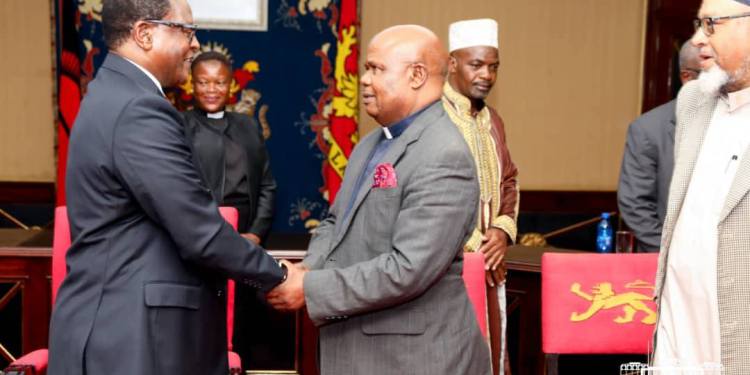By Burnett Munthali
The Public Affairs Committee’s (PAC) latest critique of President Lazarus Chakwera’s leadership underscores a deepening public frustration and mounting challenges facing his administration. PAC’s statements, delivered by Chairperson Monsignor Patrick Thawale, paint a picture of a government struggling with governance, corruption, economic management, and public trust—a combination that could significantly affect Chakwera’s political future.
PAC’s criticism of Chakwera’s leadership is rooted in allegations of inaction and indecisiveness, particularly on corruption. Despite campaign promises to tackle corruption head-on, PAC contends that Chakwera has failed to act decisively against officials implicated in corrupt practices. This perceived lack of action not only erodes public confidence but also tarnishes the image of the presidency.
PAC also highlighted a disconnect between Chakwera’s campaign rhetoric and his administration’s actions, calling out hypocrisy and a failure to align governance with the principles outlined in the Malawi Congress Party (MCP) manifesto. This observation reflects a broader sentiment among Malawians that the president’s leadership lacks accountability and transparency.
The economy remains a sore point for Malawians, with PAC noting that the cost of living has become “disastrous.” Prices of basic commodities are rising, while incomes stagnate. PAC acknowledged the appointment of a new Reserve Bank Governor as a positive step but urged the administration to back this move with robust fiscal management and support for monetary policy reforms.
The critique also extended to public expenditure, particularly the president’s frequent international trips, which have fueled public perception of government extravagance amid economic hardship. While some trips are sponsored, PAC argued that their frequency undermines public confidence in the government’s commitment to austerity.
PAC’s sharpest criticism lies in its assessment of corruption under Chakwera’s administration. The body accused the president of failing to address “massive and obvious” corruption scandals, particularly in key areas like the Affordable Inputs Programme (AIP) and fuel procurement. This inaction, PAC argued, has fostered a culture of impunity and a public perception that the leadership benefits from corrupt practices.
The organization’s emphasis on integrity and decisive action reflects broader public calls for accountability. PAC’s assertion that the administration’s “inaction and indecisiveness” are indicative of weak statecraft and a lack of operational efficiency strikes at the heart of Chakwera’s leadership style.
PAC’s assessment is not just a critique of governance but a warning about the political consequences of inaction. The organization’s statement that Chakwera’s party is on the “exit stage” unless drastic measures are taken underscores the urgency of reform. Even in Chakwera’s strongholds, PAC observed a growing doubt about his chances of reelection, reflecting a widespread disillusionment among the electorate.
In conclusion, PAC’s message to President Chakwera is both a critique and a call to action. It highlights the administration’s failures while urging the president to prioritize national interests over political expediency. With the 2025 elections on the horizon, Chakwera faces a pivotal moment to rebuild trust, address corruption, and stabilize the economy.
If PAC’s warnings go unheeded, the consequences could be dire—not just for the president’s political future but for the country’s stability. As patience among Malawians wears thin, the administration’s ability to deliver on its promises will determine whether it can regain public confidence or succumb to political oblivion.




